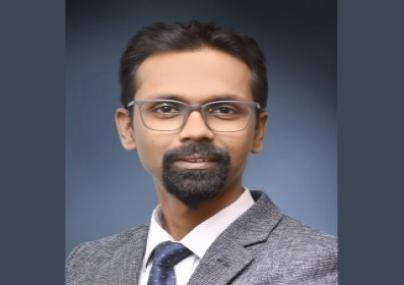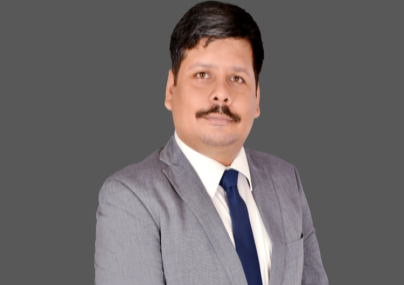Indian law firm HSA Advocates opened the month of May with a major announcement. Hemant Sahai, HSA’s founder and managing partner, was stepping down, to be replaced by Amitabh Sharma, a seasoned energy, infrastructure and corporate specialist from Khaitan & Co.
Two months into his new role, Sharma says he has been busy “consolidating the firm’s client base and relationships” to reassure them that HSA will continue to look after their interests and provide services of the highest calibre. He also points out that seeing to the comfort of clients is a critical imperative for any firm undergoing a major transition as “it is a change in environment for them.”
Despite the how hectic the shift has been, Sharma is finding the experience “enjoyable and extremely interesting” as he finds ways “to integrate the best practices from previous firms to create an amalgamation with the systems, processes and structure that HSA already had in place.”
Yet he also acknowledges that “taking over the management reins of a firm with a legacy of over a decade is not an easy task.” But with HSA’s welcoming nature, Sharma’s almost herculean task is much more doable. “Never once did I feel like I did not belong here, and I owe it all to Hemant who has cultivated an atmosphere that is easy to adapt to.”
He continued: “Amazingly, the transition planning and execution has been seamless, and I can only attribute it to the combined effort of the partnership and whole HSA team. The entire partnership collegium has always been on the same page with regard to the transition, the changes to be brought in, and the vision we have for the firm.”
As it enters its 13th year, the firm has around 90 lawyers and is ready to catapult itself to the next level or “HSA 2.0”, as Sharma calls it. Guided by its five-year strategy plan – known as HSA Vision 2021 – the firm is boosting its institutionalising efforts and has tapped international consultants for this initiative. “Being a mid-size firm with little historical baggage, we have had no difficulty in weaving a philosophy of new institutional structures, benchmarks and policies,” he explained.
He added: “We have already effectively doubled the size of the firm in terms of team size and projected revenues. The expansion is happening at such a rapid pace that we officially opened our Bengaluru office the day I joined. Now we have a solid grasp on the southern region as well. This would not have been possible without a concerted effort from the entire team. ”
Indeed, HSA and Sharma don’t view being mid-sized as a drawback. Instead, they see themselves as a firm “with an insatiable hunger, trying to create an alternative for clients and colleagues alike.” As he notes, “Clients choose the firm they work with based on quality of work, turn-around time and cost competitiveness. Mid-sized firms have an edge over the Big Law these days because we are able to adhere to these requirements and deliver. Our quality of legal advice and services are second to none and, in fact, ahead [of the pack].”
Sharma also cites how clients are watching their purse strings, and this is an advantage to mid-sized firms. “As of today, the markets in India are not as deep and sophisticated as in foreign countries, particularly the U.S. and UK, so clients are not ready to pay firms top dollar, which makes it difficult to maintain a large stock of lawyers. We do not plan to exceed 250 fee earners even in the next five years. The larger the firm, the more ambitious it is to be out there as a full-service law firm. But more often than not, most of the practice areas in these firms are not punching above their weight. We do not want to compromise on or subsidise any of our core practice areas. Moreover, most client companies are cost-conscious and have in-house legal counsel, so they can only justify the cost of an outside law firm for niche work and expertise.”
FOUR PILLARS
HSA also wants to strengthen what Sharma defines as the “four pillars” of a successful, professional law firm: ownership, management, governance, and rewards and compensation. He points out that these elements are typically “the combined responsibility” of an individual or one family or group, while “legal work has mainly been service-driven and salaried rather than entrepreneurial.”
The firm is looking to change this status quo even as it sticks to its ideology of “One Firm, One Philosophy, One Culture”. As Sharma shared, “We are trying to infuse a culture of ownership, where every single member feels accountable for the firm and its growth. Hemant and I are very clear that none of us, whether today or tomorrow, are patrons or benefactors to anyone at the firm. No one owns anyone or feeds them. Law is a profession and must be respected as one.”
Transparency is high up in the firm’s list of priorities. “The firm has always had a ‘no family member policy’ that dictates that no two members of the same family can work at HSA in any position. There should be no scope for preferential treatment, as we want to structure compensation and rewards based only on set performance benchmarks. Of course, transparency comes with the risk of running into conflicts, but it is always better to address the conflicts and resolve them rather than brushing problems under the carpet. We firmly believe that conflict is good so long as it is positive and is managed constructively,” he noted.
According to Sharma, recognising exceptional talent and hard work is embedded in the culture of HSA, as it “believes in meritocracy and how, for a performer, there is no glass ceiling.” The firm is keen to put in systems that allow “young star performers [to] be able to earn more than even a senior or a managing partner, if their performance transcends yardsticks.” Despite this goal, however, he said “there is no animalistic competitiveness” within the firm, and no one is fighting for the other’s position.”
More importantly, the firm is creating a structure that allows for “leadership by rotation”. This is evidenced even in how Sharma negotiated for a five-year turn at the reins instead of the decade-long period that Sahai proposed. “One cannot hold the same position for the rest of their life; leadership must be rotated. I once said that the only partner who cannot leave HSA is Hemant, the name partner. He laughed and responded, ‘Amitabh, don’t second guess me!’ […] If I find someone with a vision, energy, desire and drive, even I will step down with no qualms and pass on the baton.”
Having a succession plan in place is definitely a critical concern, but for now, Sharma is completely focused on working with the HSA team as the firm scales greater heights. “This is not just a solo effort, and Hemant’s assurance was that he would rally the entire firm including its senior leadership to put their weight and energy behind the effort. Two months in and I haven’t found any gap in what Hemant promised. With great position comes great responsibilities. I do not look at the words ‘managing partner’ as a designation or yet another feather in my cap. It is an enormous act of trust on Hemant’s part: something I wish to make the most of, do my best with, and leave something for the future generation of partners and lawyers. It is a trusteeship relation – you must leave behind more than you receive. It is all about trans-generational equity.”

